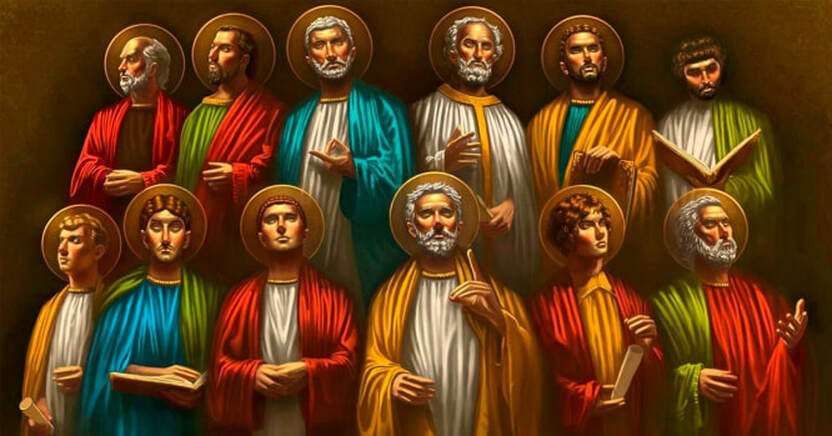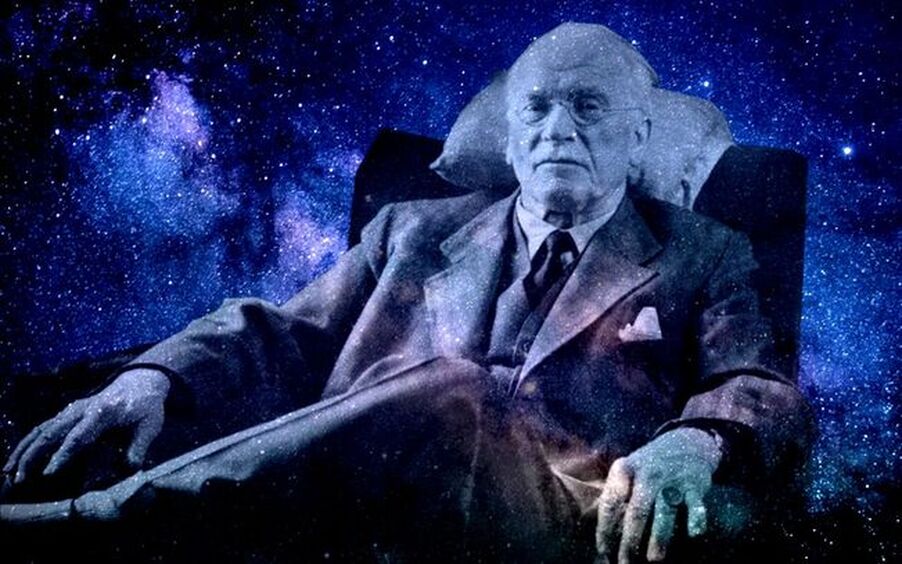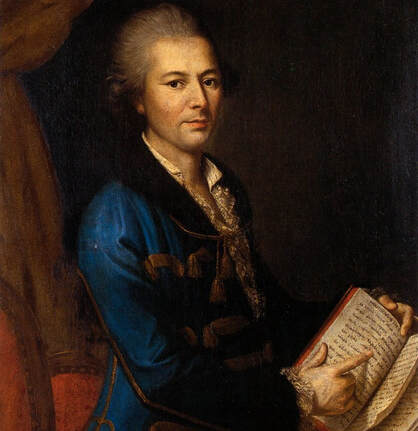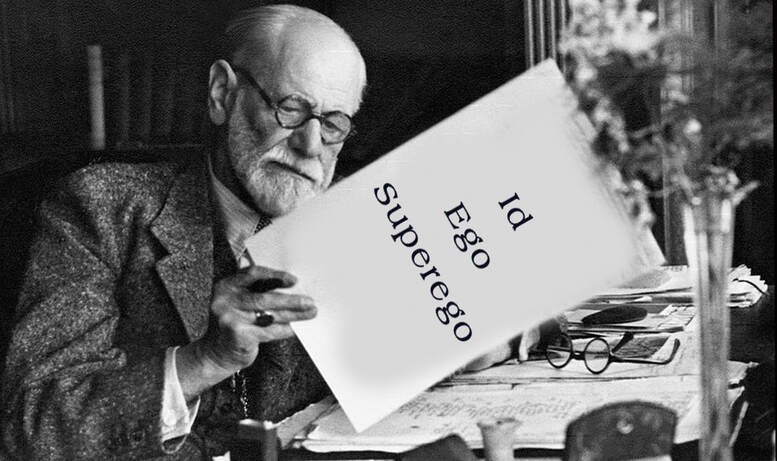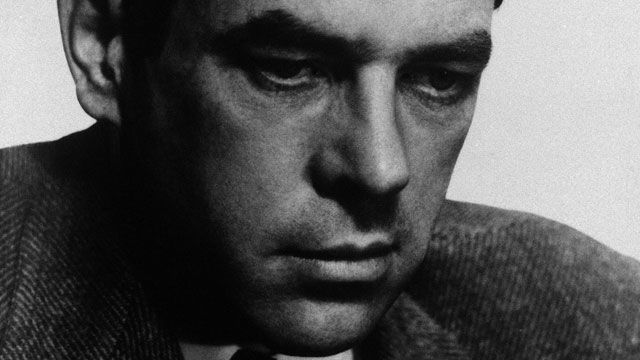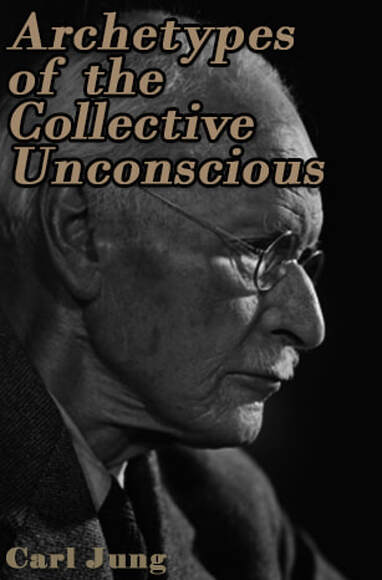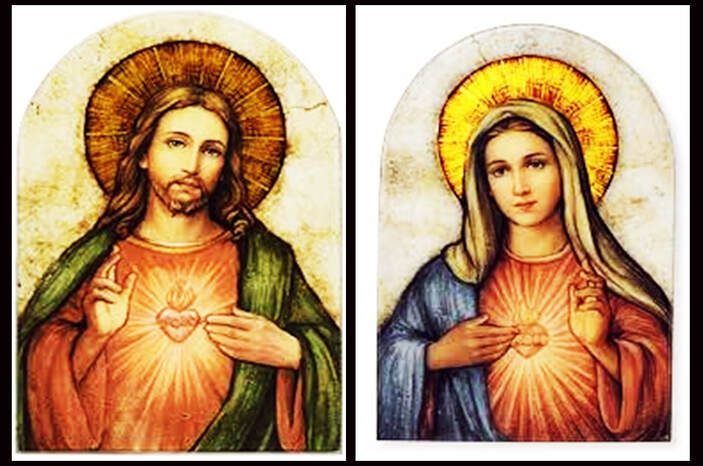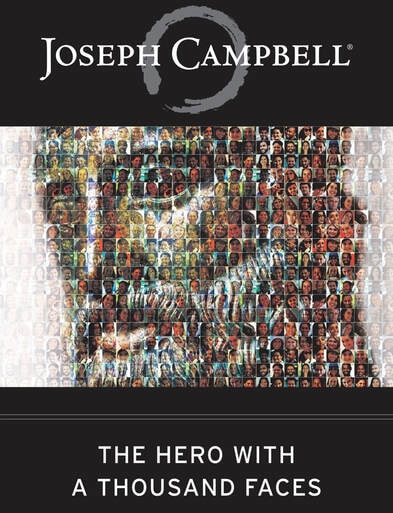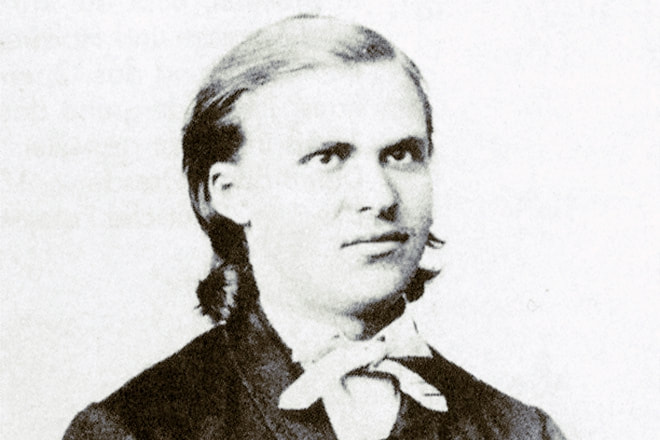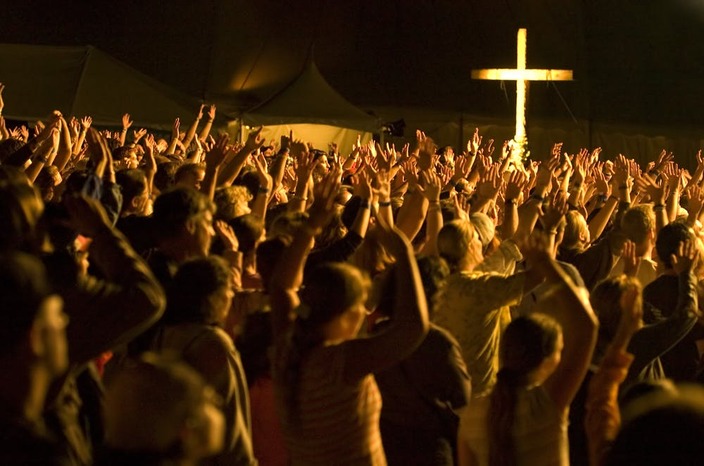JESUS MEETS JUNG
(Religion vs. Psychology)
.
by Michael Tsarion
|
|
...angels make their home in the Self, while resistance has its seat in the Ego - Steven Pressfield (The War of Art)
|
|
|
|
Since the advent of Psychoanalysis, light has been thrown onto the complex origin of and reason for religion. The underlying lineaments of Judaism and Christianity have been laid bare by many an astute thinker.
Great minds, such as Sigmund Freud, Otto Rank and Carl Jung elaborated on why people believe in supernatural gods and saviors, and why the facts about the unwholesome origins of religion mean so little to them. Carl Jung's work on the existence and nature of the Archetypes, in particular, helps us get to the heart of why religion exists. |
|
|
|
Swiss psychoanalyst Carl Gustav Jung (1875-1961), whose theories help reveal the reasons for religion and its power over human beings.
|
|
|
|
Speaking of great intellects, there would not be much religion in our world had it not been for the philosopher Immanuel Kant. He gave the religiously-minded a major shot in the arm after the publication of his seminal philosophical treatise The Critique of Pure Reason.
According to Kant we must clip the wings of reason to make way for faith. His critical philosophy delineated the limits of reason. His book's title might have been "An Examination of Reason's Limits," since that is what it primarily deals with. As far as Kant was concerned there are very definite limits to reason and consciousness. His book deals with the manner in which the external world comes to be known. How does it get into our heads, so to speak? And most importantly, is the world as we perceive and experience it the same as the world is in itself? After all, like other thinkers before him, Kant wondered if what we experience of the world (its objects and entities) might be insubstantial and fantastical, merely a matter of appearance. It's a worrisome thought, particularly for those of a scientific bent demanding solid, accurate knowledge of the apparently external world. If Kant is right, we cannot hope for that level of objective certainty, not now, not ever. Kant addressed whether the apparently external world of nature is wholly or partially illusory. Maybe what we call "reality" is just an idea we have, one of many. Should this be the case, we cannot talk of certainty and pure knowledge. Kant's inquiry addresses how much our minds shape perceived reality. To what extent is reality distorted by consciousness? What if everything we see and experience depends on the perceiving mind? Kant's inquiry transformed our ideas about reality, knowledge, perception, thinking and experience. |
|
|
|
German philosopher Immanuel Kant (1724-1804). His largely skeptical philosophy provided religious minds with the credibility they sorely needed during the eighteenth century. Without his contribution it's doubtful if Christianity would have survived into the modern age, under the assaults of thinkers such as Nietzsche, Schopenhauer and Feuerbach, etc. Many of Kant's primary ideas and discoveries pertain to those of Jung and other psychologists interested in understanding the nature of consciousness.
|
|
|
|
Kant concluded that we do not in fact have direct access to the world as it really is. We have access only to appearances and representations.
The reason for this is entirely to do with the structure of the observing mind. What we know of the world is made possible by innate mental categories and frameworks which reveal aspects of reality (the appearances), but also conceal aspects of reality. Ultimately what we think we know of the external world is entirely mind-dependent. Indeed, paradoxically, what we know about our minds, is by way of mind. Kant's philosophy is known as Transcendental Idealism. Idealism (or Idea-ism) pertains to the mind's supremacy when it comes to existence and experience. The word transcendental emphasizes that the categories of our minds are not themselves creations of nature or the world of appearances or representations. Appearances come second, whereas the mind's categories exist as innate or inbuilt structures and capacities. |
|
|
|
According to Kantians the mental categories by which we see and experience a world also prevent us accessing aspects of it. Mind reveals and conceals, making what we accept as reality a matter of contingent appearances and representations. Why a loving Creator ordained such a paradoxical predicament isn't addressed by Kant.
|
|
|
|
Kant does not say that an external world of things doesn't exist, but does maintain that it's unknowable as it is in itself. The existence of this adamantine limen between the knowable and unknowable is the central pillar of Kant's critical philosophy.
Kant's ideas constituted what has been referred to as a second "Copernican Revolution," this time in the sphere of philosophy. Many schools and branches of philosophy and science arose in response to Kant's Critique. As said above, the religiously-minded found themselves welcomed back to the table. Atheists and men of science were no longer able to dismiss religious precepts or scoff at faith. Kant's philosophy gave faith and reason (the cleric and scientist) their proper places. If confronted by non-religious types, a believer can (referring directly to Kant) defend himself by saying that because of the mind's conceptual limits it is absolutely impossible to prove beyond doubt that a God or otherworld of spirit do not exist. No human being can do it given the kind of mind they possess. Therefore, the man of faith is rational. He already accepts the limits of reason and has made way for faith. Science can't complain, because Kant dutifully assigned its territory. Science is instrumental to our understanding of this world, the realm of appearances and representations. Hail to religion and science! They do not oppose one another after all, and both are required if we are to understand reality. The Black Robes sighed in relief and signed back in. Their teetering house of cards stood steadfast despite growing world skepticism. It's amazing they didn't canonize the hermit of Konigsberg. Yes, religion was back with a vengeance. A humble German pedagogue waved his hand and provided believers with the haven they needed against the torrents of scientific successes and achievements before, during and after the Age of Enlightenment. Instead of falling off the precipice, Christianity was able to secure some credibility as we moved into the modern age. The mysteries of being, spirit and of mystery itself had been salvaged and not cast to the winds. |
|
.
|
|
The radical Kantian revolution had a major impact on the establishment of Psychoanalysis. Thinking, and thinking about thought, would never be the same. Jung himself openly identified with Kant, and stressed that his own ideas were also based on empirical evidence.
As a psychologist, Jung studied the mysteries of mind, as had Kant. He knew that the origins and activities of mind are mysterious. On one side consciousness must be studied scientifically, although as good Kantians we must yield to the limits of such investigations and prepare to encounter both the unknown and unknowable. This defines Jung's eclectic quasi-mystical approach toward the psyche. Regardless of how much he discovered, he always noted and respected what remained in darkness. He also acknowledged that what appeared in the light often changed radically given the passing of time and one's perspective. Certain, codified knowledge of the psyche is just not possible. As Soren Kierkegaard, the founder of Existentialism earlier said: Life is not a problem to be solved, but a mystery to be experienced. Jung's attitude toward the psyche was, in this regard, distinctly Kantian. As far as he was concerned, scientific probing reveals only so much about being. The psyche cannot be wholly penetrated by intellect and completely exposed to the light. The psyche is defined by what we don't know about it, as much as it is by what it reveals of itself. This is an eternal and absolute law. Of course, Jung's study concerned the effect of mind on mind. The psychologist uses his consciousness to understand that of another person, a complicated and labyrinthine process to be sure, involving resistance and deception on both parts. Freud stressed the problems involved, and that what we refer to as ego-consciousness is mostly a case of defence mechanisms: |
|
|
|
|
For Freud self-knowledge means that man becomes conscious of what is unconscious; this is a most difficult process, because it encounters the energy of resistance by which the unconscious is defended against the attempt to make it conscious - Erich Fromm (Anatomy of Human Destructiveness)
Freud found that if the analyst touched on repressed material the patient would “resist” his therapeutic approach. This is not a matter of conscious unwillingness on the part of the patient or of dishonesty or of secretiveness; he is defending himself against the discovery of the unconscious material without being aware either of the material or of his resistance…The patient can turn away from the sensitive topic and talk about something else; he can feel sleepy and tired; he can find a reason not to come to the interview, or he can become very angry against the analyst and find some reason to quit the analysis - ibid |
|
|
|
So we see that the ego is a mass of defences, not only because of threats from the external world, but from the so-called "unconscious mind." As psychologists know, what we call consciousness is divided into hemispheres. In Freud's scheme we have the ego, superego and id. The latter is the deep unconscious and its content, which is for some reason sectioned off from normal daily awareness. It's almost like Kant's unknown world beyond awareness pertains to the Self rather than to nature. In this sense, Jung's ideas resemble those of many mystics.
The Freudian picture of consciousness implies a supervening force responsible for the division of hemispheres, some psychic agent possessing the power of a censor. In neuroscience this is similar to the power and ability of the so-called Left Brain. |
|
|
|
Freud's architectonic scheme of consciousness works well as a metaphor. However, certain questions remain, such as how the three divisions take form, and why? Moreover, if personality is indeed dyadic, or even triadic, how do the three voices within us harmonize? How fragile is sanity? Is it correct to demonize the id and consider the superego the true seat of morality? What role does the less mentioned ego-ideal play? In what ways did Freud change and develop his famous scheme? What did Jung accept and reject about Freud's schemata?
|
|
|
|
Many are the thinkers and experts with theories as to why consciousness is structured this way. Jung accepted much of Freud's architectonic structure, but had interesting things to say about the nature and dynamics of the unconscious self, and like Freud his ideas provide great insight into the phenomenon of religion.
Although Jung was not, like Freud, an atheist, he stressed that his idiosyncratic ideas were wholly based on empirical study. Among his most insightful theories is that pertaining to the content of the unconscious. Unlike Freud, Jung believed that the unconscious is not simply a personal structure or repository, made up of content experienced throughout a single lifetime. In other words, the unconscious should not be considered merely the result of ontogenetic experience. Rather, it is the product of phylogenetic processes, an epiphenomenon of collective experience and factors. Jung coined the term Collective Unconscious to describe the phenomenon, referring to the long historical process and experiences not of a single individual during his or her lifetime, but to the life of humanity in general and as a whole. This is the mythical level or strata, utterly ignored by the vast majority of people. Mircea Eliade, Carl Jung, Joseph Campbell, James Hillman, Edward Edinger, and a few others, detailed the elusive phenomenon in their many insightful works. Before their time certain philosophers spoke of it, primarily Georg Hegel, Alfred North Whitehead and Friedrich Schelling, who coined the term "unconscious." |
|
|
|
Joseph Campbell (1904-1987), author of many extraordinary works on the mythic underpinnings of daily life, was one of the main extrapolaters of Jung's ideas to modern audiences. (Here for more...)
|
|
|
|
Jung's anthropological approach takes it for granted that the myriad experiences of all humanity have, over millennia, become deeply embedded in the psyche of the individual. These innate impressions or entia make up the content of the unconscious, even though most people remain unaware of it and rarely willingly seek access to it.
These enfolded memories are a priori to the extent that they do not exist due to the individual's subjective experiences. Again, we have a close resemblance between Jung's ideas and those of Kant. In many respects, Jung's ideas are an improvement on those of the earlier sage, particularly when it comes to the problems of Tabula Rasa (or Blank Mind), "innate ideas" and the "noumenon." We find cogent explanations for it all in Jung's work. It is as if Jung turned Kant's Transcendental Idealism within, making the categories and their limits a matter of the subject rather than the object. The emphasis for Jung, as it is for most psychoanalysts, was man's inner world. Is it knowable? Can it be fathomed and understood, or is it permanently off limits to the ego? And if this is the case, what does it mean for cognition, science, knowledge, existence and meaning? What does it mean if the mystery of the Self is permanently veiled from or by the Self? |
|
|
|
Jung's masterly book introduces one of the most profound concepts concerning consciousness. Jung not only explains the origin of religion and mystical ideas, but also addresses why inner content of the unconscious problematically gets projected externally, creating dogmatic paths and religious movements such as Judeo-Christianity.
|
|
|
|
Understanding the Archetypes and Collective Unconscious means we must meditate on the mythic underpinnings of our apparently humdrum stereotypical worldly experiences. This is largely impossible task for the majority of highly desensitized people around us.
In any case, what we consider personal experiences are for the most part experienced by many other people. From the dawn of time this has been the norm. According to Jung, the myriad experiences had by all people remain enfolded in the unconscious or id. Furthermore, this content is alive and well in the mind of the individual whose daily experiences add to the archive of the past. (Hence the true reason for deja vu and "out of body" experiences.) Moreover, unconscious content effects the conscious mind in various ways, both good and bad. |
|
|
|
Jesus portrayed in distinctly feminine guise. Did he exist or does he represent an aspect of every human being's own being?
|
|
|
|
As far as Jesus Christ is concerned, Jung saw figures of this kind as representations of an archetype he referred to as the Animus. Beings of this kind, real or fictional, represent the archetypal male in heroic mode. This goes for Freud's famous Totemic Father, namely the father, tutor, coach, patriarch, autocrat, warlord, leader, guru or savior. In this sense the Jesus figure is hardly unique. He's but one more solar child and king.
Heroic or semi-heroic icons such as Jesus are venerated because all men and women throughout history have experienced this "type." Everyone forms an idea about their father and tribal chief, king, priest, hero or great man. Over time these ideas and memories constellate, not only in individual minds, but in the collective mind. As they coalesce they become ever more powerful in terms of libido. They finally become so dynamic and numinous that they form the basis of consciousness. Figuratively speaking, one could say that consciousness arises from their conversation and interplay. The Hero is, therefore, an aspect of one's own consciousness, a daimonic force one experiences within themselves every second of the day. Should a physical male with heroic traits appear before us in the world, we inevitably unconsciously project the Hero archetype upon him. This can be a healthy or unhealthy thing. In the case of most Christians the projection is pathologically obsessive. In these cases the archetype is completely emptied out into the stereotype, its soveringty and meaning lost. This is the true significance of the "Fall," as it appears in religious scriptures. This is how spirit gets trapped in matter. Actually, the Hero Archetype is but one of at least thirteen other related archetypes, such as the Warrior, Traveler, Orphan, Innocent, Trickster (or Fool), Wise Man, Wild Man, Outsider, Shadow, Devil, etc. Despite their mythical and psychological power and significance, each was born from worldly experience in space and time. There is nothing "supernatural" about the archetypes. |
|
|
|
Joseph Campbell explores Jung's seminal ideas in his works, particularly in The Hero With a Thousand Faces.
|
|
|
|
With this in mind we see that Jung's insistence on the empiricism of his work holds true and is not a spurious claim. Moreover, he provides many astounding anecdotes of his encounters with patients and people whose behavior, dreams and experiences betray the nature and dynamics of the unconscious.
Among Jung's many archetypal influences is that of God. Psychologically speaking, God represents the Self, which, veiled and mysterious as it is, constitutes the unfathomable center of our being. It is as if the Imperial Self's "needs" are served by other lesser archetypes, particularly by the Animus and its feminine counterpart the Anima. (It is not by chance that the etymology of these terms connotes the soul, spirit and life-force.) Perhaps now we can understand why the Book of Luke tells us that the Kingdom of God is within. In Christian texts and artwork, the Anima and Animus are styled as Jesus, Mary the Virgin, and Mary Magdalene, with other major and minor characters (such as Joseph, Judas and Pilate, etc) playing supporting roles, as it were. Whether these characters existed as physical historical beings is beside the point. Psychodynamics matters more than history, since it is probable that Jesus, Mary and even God himself had/have an unconscious, a possibility conveniently ignored by Christians. As Jung repeatedly pointed out, the influence and interference of these archetypal forces is often irritating and upsetting to the ego. Their influences and directives often run contrary to our conscious desires and ambitions. They are particularly troublesome when they influence our relationships. But of course, we must never forget that we are always in a relationship with ourselves, and that this relationship can be conflictual and neurotic. In fact, as Jung emphasized, neurotic tendencies occur because of an imbalanced relationship between conscious and unconscious selves, the ego and archetypes. It is because we resist integrating the archetypes in holistic ways that they get projected externally, onto the world and other people, real or fictional. The whole experience of "falling in love," is for instance based on projection and transference of affects (emotions). Taking Jung's teachings to their extreme significance, we see that everything we do and are is shaped by the archetypes. They are the building blocks of our consciousness, the constituents of our mental and emotional makeup. What we know as thinking and feeling are merely consequences of archetypal activity. |
|
.
|
|
This is not the place for a detailed explanation of Jung's ideas on the archetypes, and how the Animus, Anima, etc, work in our lives.
What must be emphasized, however, is the impact of the archetypes on the advent of religion. The totemic fathers of Judeo-Christianity - Jesus, the Prophets, Patriarchs and Popes, etc - are to be understood as external representatives of the Animus or masculine proclivity within men and women. Archetypally speaking, God represents the Self. In other words, most people prefer to worship imperfect external stereotypes in order to avoid exploring the mysteries of their own psyches. Hence, religion serves to replace psychology, with its adherents (as Nietzsche loudly pointed out) recoiling from Self-knowledge and any road leading to it. |
|
|
|
Friedrich Nietzsche (1844-1900) was one of the foremost opponents of dogmatic religion. Along with other thinkers, such as Voltaire, Feuerbach and Schopenhauer, etc, he not only dissected the contradictions and errors of Christianity's doctrines, but lucidly explained why human beings flock to religion despite its flaws and crimes. What is it we seek to evade by signing on for the absurd doctrines of religion? Could it be the mysteries of Selfhood? As far as Nietzsche was concerned, both the cleric and the scientist are haters of wisdom, truth and Selfhood. Both take refuge from reality inside their respective dogmatic cages.
|
|
|
|
Evasion of Self amounts to a collective neurosis, a mass act of dissociation, harming humanity and the world. It serves to drench our world in "Mysteria;" things so irrational they should not be, but are everywhere to be found.
The projected Animus can certainly bring us good things, and no relationship is possible without a degree of projection. It is, however, often the reason for and cause of many pathological syndromes. Humankind's collective experience of father, for example, cannot be said to be wholly positive. Not all fathers are loving, kind, protective, wise and good. In this sense each and every archetype is ambivalent in aspect. Each has a dark side, so to speak. As I explain elsewhere, once an archetype is perpetually ignored or banished, it returns in "daimonic" (or antagonistic) form, as a presence which disturbs psychic equilibrium. At this point it is the cause of paranoia and insanity. The halfway point to this pathological state is demarcated by one's obsession with religious dogma. Christianity has done its best to sanitize its chief icons - Jehovah, Jesus and Mary. Nevertheless, informed people know it is sheer madness to fall for it. The highest mystics correctly pondered as to whether God has a dark side or an unconscious, as human creatures do. It would explain a lot if he did. But, sadly, the idea is taboo for Christians. It's out of the question. And despite some of the antics of Jesus as described in the Gospels, we are forced to envision him as all good. Most Christians have no problem envisioning such a improbable character. They find themselves able to believe in a wholly good God and wholly evil Satan, despite what stands before them in terms of their own personalities, and despite the existence within them of conscious and unconscious drives. More evolved minds know that both Testaments must be read as expressing and pictorializing archetypal dynamics, not just historical events. As Freud and Jung understood, because this is the case - and because most humans must have a ghastly totemic father-image in some shape or form - it is likely that one will always exist to be venerated. Some stand by the belief even though they know it's all a matter of human psychology, while the more critical believe it's best if we dispense with external authorities altogether. The latter type chafes against the fact that the external authority soon abuses his or her power, instantiating hierarchies under which ordinary people labor and think as inferiors. Under the tyrant one is bound to negate and lose Selfhood not enhance it, which is the ultimate goal of psychology. |
|
|
|
Fundamentalism is the philosophy of the powerless, the conquered, the displaced and dispossessed - Steven Pressfield
|
|
|
Does this mean that the icons and characters of religion have their roots in the psyche, and that underneath theology stands psychology? We are bound to answer in the affirmative.
If the angels and semi-divine characters of religion are actually archetypes, then good and evil begin and end with the Self. God and Satan are unquestionably aspects of one's inherent nature. Perhaps it is this truism that so offends the religious type, compelling them to submit to the doctrines of coercive theocracies. Certainly, according to Jungian theory, figures such as Jesus and Mary came into being because throughout the long ages of history men and women had experiences of certain phenomena that gradually constellated to become the archetypal ideas known as Anima and Animus. Both are the result of ideas that have from simple repetition; experiences "fermented" over time, as in the case of wine. Jung stated that we do well to think of archetypes like genes in a physical body. Archetypes, he said, are like the DNA of the mind. They program consciousness, giving minds their particular orientation and complexion. Past experiences accrue and, as archetypal impressions stored in the unconscious, they help us make sense of experiences and events. They make up what we call the Self, giving context to our experience of Self and world. They are, in effect, the way we experience life. Some psychologists, such as Georg Groddeck, Otto Rank and James Hillman, prefer to describe them as ways of seeing. We must not, however, make the mistake of thinking that archetypes determine behavior or destiny in any fixed sense. This is because as "ways of seeing," they are not static perspectives. They change as they/we experience the world here and now. What the Christian believer must understand is that they do not need Jesus, but most certainly do need the Animus. They need the Hero, Wanderer, Warrior, Wise Man and Shadow. Accessing and communing with these inner beings, angels, daemons or guides entails a sincere Nietzschean turn within, to the cave of inwardness. It means initiating a truthful private dialogue with oneself. In Jungian terms it means the return of projections from the theater of the world to the heart and mind from which they came. Until one intones this call, reverently and purely, one remains enslaved to the externalized archetype and suffers accordingly. In depersonalized form the externalized Animus and Anima ultimately lead one astray, into pitiful idolatry, enthrallment, infatuation, and mental or emotional bondage. They frequently lead one into the traps of religion. This constitutes man's true "Fall." |
|
|
|
One of early man's first numinous experiences was that of the sun in the heavens. It was a source of astonishment, awe and mystery. Over the millennia the sun (and light) became highly symbolic supernal archetypes. The same goes for the cumulative experiences of father, mother, birth, death, joy, sex, sorrow, fear, hatred, failure and triumph, etc. The fathomless unconscious preserves it all, every experience of anything and everything, significant or insignificant. What we call thinking and emotion are emanations of it all. It accounts for the continuing dynamic interplay between hemispheres of consciousness, and what we know as Self is its result. The one who looks outward is the dogmatist, while the one who looks inward to the Self is the mystic and true believer.
|
|
|
|
Ignorantly worshiping our own being on the theater of the external world leads to pathological behavior and neurosis. We are ensnared and enslaved to the will of despots in all sorts of guises. We are wide open to irrationality, manipulation, mania and insanity. As parents often work to deliberately undermine our will and identity, the world's leaders and misleaders use our psychic dissociation to their advantage. In fact, our estrangement from ourselves is the main reason for the rise of all tyranny. However, the deadly predicament ends the moment we heed the inscription at the Oracle of Delphi - "Gnothi Seuton" or Know Thyself. No other instruction is needed on the journey toward enlightenment.
Sadly, the religious zealot isn't the least bit interested in this process. It's far too complicated and threatening. They'd rather project the Animus externally and continue believing in some looming demagogue, even when the road leads to tyranny and enslavement, as it has from time immemorial. To remain victimized by externally projected psychic content is, for Jung, to be possessed. I therefore ask how our planet can ever experience peace and harmony as long as it remains full of slaves and masters, each and all in a state of demonic possession? One look at the history of Christianity, and we see that Jung was absolutely correct. As to solutions, Jung has many pointers. I'll conclude with one of his most important statements on the future of humankind, noting that his call and challenge is for us to discard the chains imposed by corrupt religions, given that theology is ultimately the refuge for those adamantly against encountering the mystery of their own psyche: |
|
|
|
A great change of our psychological attitude is imminent, that is certain...we need more psychology, we need more understanding of human nature because the only real danger that exists is man himself, he is the great danger, and we are pitifully unaware of it, we know nothing of man, far too little. His psyche should be studied because we are the origin of all coming evil - Carl Gustav Jung
|
|
. . .
Michael Tsarion (2020)
